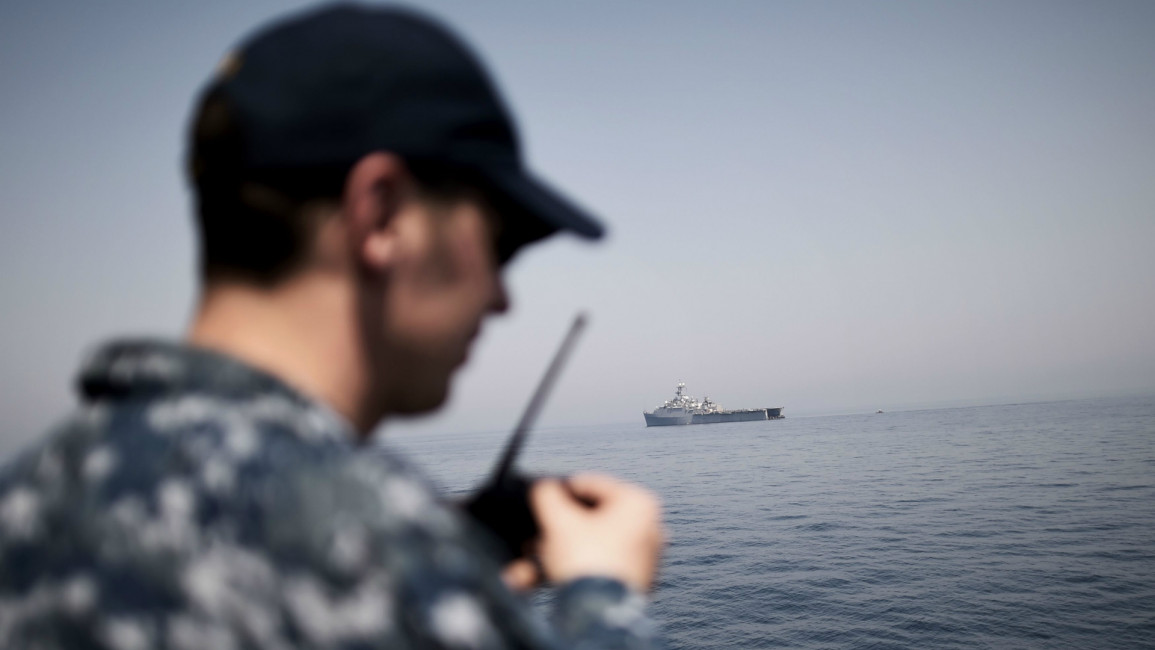US aircraft carrier enters Arab Gulf after long absence
The arrival on Friday of the USS John C. Stennis comes as Iranian officials have returned to repeatedly threatening to close off the Strait of Hormuz, the narrow mouth of the Arab Gulf through which a third of all oil traded by sea passes.
Iranian Revolutionary Guard vessels shadowed the aircraft carrier and its strike group.
They launched a drone, as well as test-fired rockets away from the aircraft carrier and its strike group.
Iran routinely operates small boats in the Strait of Hormuz and the surrounding area, and has often threatened to shut down the highly travelled waterway.
Now read:
A history of Iranian threats to blockade Gulf oil exports
The incidents at sea typically involve the Revolutionary Guard, a paramilitary force that reports to Supreme Leader Ayatollah Ali Khamenei.
In 2017, the worst incident occured when 10 US sailors were captured and held overnight for straying into Iran's territorial waters.
Iranian forces in turn accuse the US Navy of unprofessional behavior, especially in the Strait of Hormuz, the mouth of the Arab Gulf, through which a third of all oil traded by sea passes.
In recent months Rouhani renewed the threat, saying that if sanctions threatened Iran's crude oil exports, the rest of the Mideast's exports would be threatened as well.



